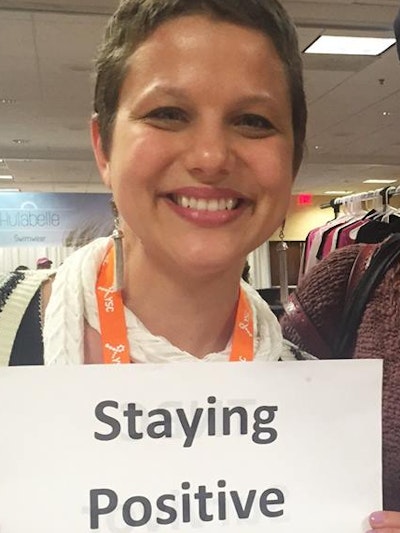Welcome to the 2023 San Antonio Breast Cancer Symposium (SABCS)! This year’s symposium unofficially kicked off on Monday with events that centered around patient stories and diversity in clinical trials. There’s a lot to be excited about, so let’s start at the beginning!
Why are clinical trials (and clinical research!) important to the TNBC community?
SABCS is an international symposium that brings together the leading breast cancer researchers, scientists, doctors, and patient advocates in order to present the newest, cutting-edge research in breast cancer. In its 46th year, SABCS is often the very first place that the world hears about scientific breakthroughs in detecting, treating, and monitoring breast cancer.
These scientific breakthroughs can offer hope, especially for TNBC patients who are eager for more (and better) treatment options. It’s important to remember, though, that research is not known for its speed. In order to be careful and certain about the safety, efficacy, and benefit of new treatments, there are many steps that researchers must take. In order to understand the impact and timeline of the new research being presented at the 2023 SABCS, let’s dive into the phases of clinical research:
Discovery phase: The researchers work to discover a new drug or treatment and understand how it works.
Pre-clinical research: Researchers test the newly discovered medicine to answer basic questions about whether or not a drug is safe.
These early steps of research prior to clinical trials can, on average, take anywhere from three to six plus years.
Phase 1: Research begins with a small group of individuals to test the best dosage and to confirm the safety of the intervention. According to the FDA, approximately 70% of drugs move on from Phase 1 to Phase 2 research.
Phase 2: After a drug is deemed safe, researchers begin to measure how well the drug is working and they document any side effects that the participants experience. According to the FDA, approximately 33% of drugs move on from Phase 2 to Phase 3 research.
Phase 3: Now that researchers know that a drug is effective and safe in a small group of people, they bring in a much larger group of participants to make sure that the drug is effective for many people and for a longer period of time. According to the FDA, approximately 25-30% of drugs move on from Phase 3 to Phase 4 research. The FDA approves or does not approve drugs after phase 3 of a trial.
Phase 4: Now that the medicine is approved, the researchers continue to monitor the safety and effectiveness of that drug for a longer period so that they can better understand how exactly it works and what the side effects are over a long period of time.
Altogether, these four stages take an average of another six to seven years.
As we talk about the research and findings being presented at SABCS 2023, we’ll let you know where those findings are in relation to this timeline. Most of the TNBC research presented this year will fall in the early stages of research, which means it will be a few years before these breakthroughs are available to the general public.
A reminder, though, that participating in clinical trials gets you access to many of these drugs before they hit the market. Clinical trials are first class and should be our first thought, not our last.
Stay tuned for more updates on TNBC-specific research from SABCS tomorrow!





